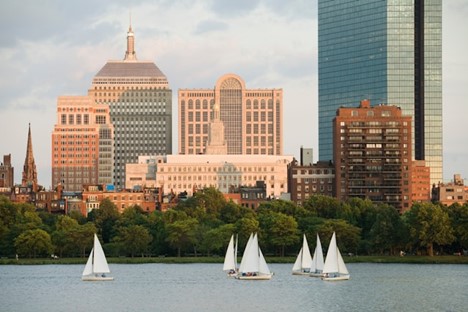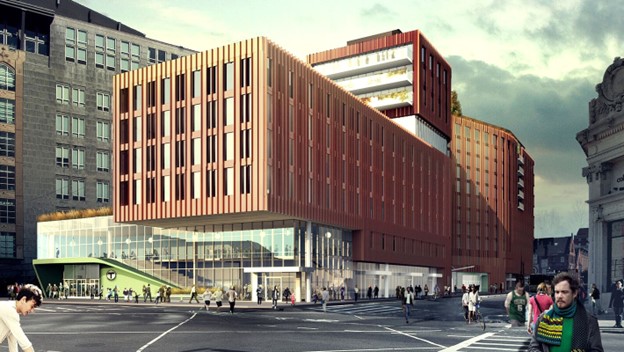
Boston, with its rich history, vibrant culture, and economic prowess, has long been a coveted destination for homeowners. In recent years, the city's luxury residential market has flourished, drawing in both domestic and international buyers seeking exclusivity, sophistication, and a prime urban lifestyle. This article explores the factors driving Boston’s luxury real estate market, the types of properties that define it, and the neighborhoods that have become synonymous with luxury living.
The Rise of Boston’s Luxury Real Estate Market
Boston's luxury residential market has experienced remarkable growth over the past decade, driven by a thriving economy and a surge in demand for high-end properties. With strong sectors like technology, finance, education, and healthcare, the city has become a hotspot for real estate developers eager to capitalize on the opportunities presented by this flourishing market. Wealthy professionals, entrepreneurs, and investors are increasingly drawn to Boston, attracted by its economic stability and rich cultural offerings.
Boston’s status as a global city has also lured a diverse pool of international buyers, further fueling the luxury market. Prestigious universities such as Harvard and MIT make the city an appealing destination for affluent families worldwide who are eager to secure an exceptional educational environment for their children. The city’s rich history, combined with its world-class amenities, offers a unique blend of tradition and modernity that resonates with buyers from around the globe.
Property development companies note that the market is characterized by a scarcity of available land and an ever-growing demand for prime properties. This imbalance has driven prices upward, making Boston one of the most expensive cities in the United States for luxury homes. In the city’s most sought-after neighborhoods, properties command premium prices, often surpassing $2,000 per square foot. Developers play a crucial role in navigating this competitive landscape, transforming limited space into luxurious living spaces that cater to the city’s elite clientele.
Defining Luxury in Boston
Luxury in Boston’s residential market is defined by several key factors: location, architectural design, amenities, and exclusivity. The most sought-after properties are typically found in historic neighborhoods that offer a combination of cultural heritage, scenic views, and proximity to the city’s economic and social hubs.
Architectural Design and History
Boston boasts a blend of historical charm and modern sophistication. Many high-end homes are housed in historic brownstones and mansions that have been meticulously restored to preserve their original character while incorporating contemporary features. These properties offer a unique combination of old-world elegance and state-of-the-art amenities, appealing to buyers who appreciate architectural heritage.
Amenities and Services
Luxury buyers expect more than just a beautiful home; they seek a lifestyle. High-end residences often come with a suite of amenities that cater to this demand. From private rooftop terraces with stunning city views to state-of-the-art fitness centers, indoor pools, and concierge services, the amenities offered by luxury homes and apartments are designed to enhance the quality of life for their residents.
Exclusivity and Privacy
Exclusivity is another hallmark of luxury. Gated communities, private entrances, and advanced security systems are common features in high-end residences. Privacy is highly valued, especially among the city’s wealthiest residents, who seek to escape the hustle and bustle of urban life without sacrificing convenience.

Desirable Neighborhoods
Several neighborhoods in Boston have become synonymous with luxury living. These areas offer not only high-end properties but also a lifestyle that blends convenience, culture, and exclusivity.
Back Bay
Back Bay is one of Boston’s most prestigious neighborhoods, known for its Victorian brownstones, upscale boutiques, and world-class dining. The area’s historic charm, combined with its proximity to the city’s financial district, makes it a prime location for luxury buyers. Properties in Back Bay often feature stunning views of the Charles River and access to the city’s most iconic landmarks.
The Peebles Corporation’s Viola Back Bay - a transformative 400,000-square-foot mixed-use development. This landmark project will link the Back Bay and Fenway neighborhoods, revitalizing the Newbery Street corridor with a blend of residential, retail, and community spaces. Named in honor of the nearby Berklee College of Music, Viola Back Bay will feature a state-of-the-art, universally accessible Hynes MBTA Station, enhancing transit options and integrating innovative design into the heart of Boston.
Beacon Hill
Beacon Hill, with its cobblestone streets and Federal-style row houses, epitomizes Boston’s historical elegance. This neighborhood is one of the oldest in the city and is highly sought after by buyers who value tradition and exclusivity. Homes in Beacon Hill are often meticulously preserved, offering a unique blend of history and luxury.
Seaport District
The Seaport District is Boston’s new frontier for luxury living. This rapidly developing area has transformed from an industrial zone into a thriving waterfront neighborhood, featuring ultra-modern high-rise condominiums, luxury hotels, and cutting-edge dining and entertainment options. The Seaport’s contemporary appeal and waterfront location make it a top choice for younger buyers and tech industry professionals.
South End
The South End has emerged as a fashionable enclave, known for its artistic vibe and diverse culture. This neighborhood offers a mix of historic townhouses and modern lofts, attracting buyers who appreciate a vibrant, community-oriented atmosphere. The South End’s eclectic charm, combined with its proximity to downtown Boston, makes it a desirable location for luxury buyers.
The Future of Boston’s Luxury Market
The future of Boston’s luxury residential market looks promising, with continued demand expected from both local and international buyers. The city’s ongoing development projects, including new luxury condominiums and mixed-use developments, will likely continue to attract affluent buyers looking for the latest in design and amenities.
However, challenges such as rising construction costs and limited availability of prime land could put upward pressure on prices. Despite these challenges, Boston’s luxury market is expected to remain robust, driven by the city’s strong economy, cultural appeal, and global reputation.
Conclusion
The luxury residential market in Boston offers a unique blend of history, culture, and modernity, making it one of the most desirable markets in the United States. As the city continues to grow and evolve, its luxury real estate sector is poised to attract even more discerning buyers seeking an unparalleled urban lifestyle.

No comments.